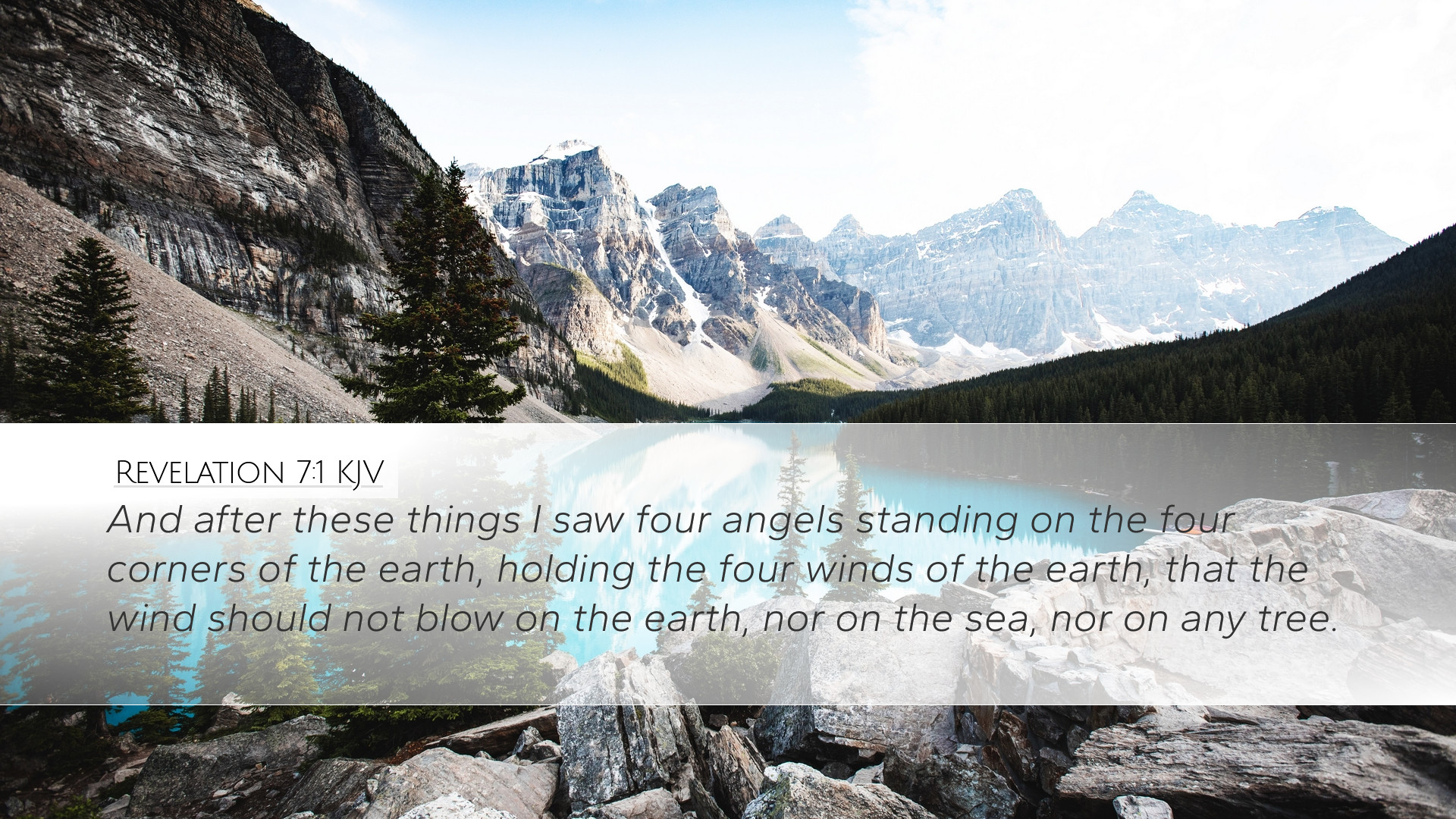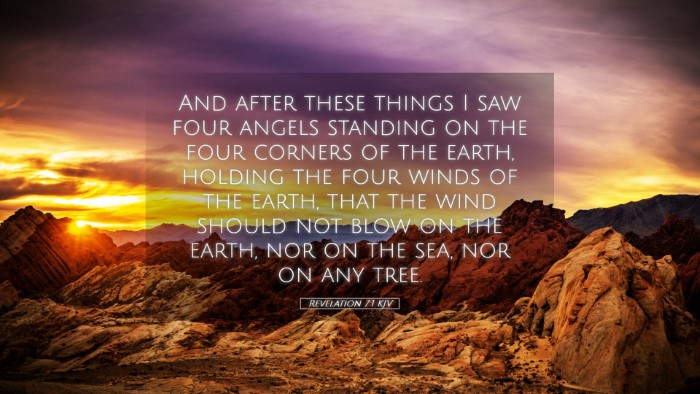Commentary on Revelation 7:1
Verse: "After this I saw four angels standing at the four corners of the earth, holding back the four winds of the earth, that no wind might blow on earth, or sea, or against any tree." (Revelation 7:1, ESV)
Introduction
The book of Revelation is often characterized by its rich imagery and profound theological insights. Revelation 7:1 serves as a pivotal transition in the narrative, introducing a scene of divine intervention and protection amidst the apocalyptic judgments that are to unfold. This verse invites significant reflection on the sovereignty of God, the role of angels, and the thematic elements of protection and judgment.
Exegesis
In this verse, John, the author of Revelation, describes a vision of four angels positioned at the "four corners of the earth." This geographical symbolism echoes the biblical motif of completeness, particularly related to God's dominion over all creation. The phrase "four corners" represents the totality of the world—north, south, east, and west—indicating that God's authority and control extend to all parts of the globe.
Angelology
These angels are depicted as holding back the four winds of the earth. According to Matthew Henry, this holds a significant theological importance; the winds here symbolize the forces of judgment and destruction. The angels' action reflects divine restraint, preventing calamities that could devastate the earth. Henry elaborates that this restraint is not only a protective measure for humanity but also a preparation for the sealing of the servants of God.
Symbolism of Winds
Albert Barnes emphasizes the symbolic nature of the winds, interpreting them as agents of God's wrath. By halting the winds, God demonstrates His sovereignty over the elements of nature and the spiritual realm. This duality of nature and spirituality aligns with the views presented by Adam Clarke who notes that the winds can metaphorically represent the tumult and trials that often accompany divine judgment.
Divine Protection
The act of holding back the winds underscores the theme of divine protection. Clarke indicates that this moment signifies a pause before a forthcoming judgment, allowing the faithful to find reassurance in God's providence. The text implies that God is not indifferent to the plight of His creation; rather, He actively intervenes to shield His people from impending disaster.
Theological Reflections
The commentary on this verse illustrates various important theological themes:
- Sovereignty of God: Revelation 7:1 exemplifies God's supreme authority over the earth and its inhabitants. His control over the angels and the winds signifies that nothing occurs outside of His will.
- Divine Judgment and Mercy: The temporary holding back of winds symbolizes God's mercy, providing a period of respite before judgment. It reflects His desire for repentance and protection of His elect.
- Role of Angels: The presence of angels highlights their role as God's messengers and agents in executing His will. This raises further questions about the interaction between the heavenly and earthly realms in the biblical narrative.
Applications for Pastors and Theologians
This verse offers rich material for pastoral application and theological exploration:
- Encouragement in Trials: The reminder of divine protection can be greatly comforting for congregations facing hardships. Pastors can use this imagery to encourage faith amidst struggles, knowing that God withholds chaos for His purpose.
- Understanding Judgment: It introduces the theme of divine judgment, prompting discussions on the nature of God's justice. For theologians, this verse could lead to discussions on eschatological themes and the finality of God's plans.
- Spiritual Warfare: The imagery invites reflection on the spiritual dynamics at play in the world. It engages topics of spiritual warfare, emphasizing the necessity of prayer and reliance on God’s strength in times of trouble.
Conclusion
Revelation 7:1 encapsulates profound truths regarding God's sovereignty, angelic agency, and the delicate balance between judgment and mercy. As believers study this text, they are reminded of God's protective hand over His creation and are encouraged to trust in His ultimate plan for redemption. This verse, therefore, serves as both a warning and a comfort, inviting all to reflect on the depth of God's care amidst the unfolding events of human history.


